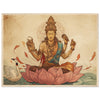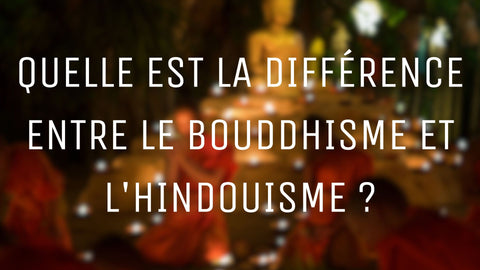
Buddhist prayer before eating
of reading
Buddhists practice several types of prayers. These vary depending on the circumstances, whether it is a simple prayer or a prayer before a meal. However, these prayers differ from one Buddhism school to another.
We are interested in the prayer of Buddhists before eating. Discover the different Buddhist prayers before a meal.
The five prayers of a Zen meal
In Buddhists, prayers before meals are called reflections Where memories. These are words that must be meditated during the meal. These prayers are small songs that we hum in the meal.
The meal time is the moment favorable for quenching and showing its gratitude. This acknowledgement is turned towards the blessings that the earth gives us.
It is also a way of weaving links with his entourage in strict respect for the body. Before a meal at Zen Buddhists, you have to sing a song subdivided into 5 thoughts.

1time Zen reflection
The first reflection of a meal of Zen is this:
"Let's think about our own work and the efforts of those who brought us that food."
This expresses the gratitude of everything that has been done for the culmination of this meal alone. Buddhists feel that all foods have an origin. Each food follows several steps before its final culmination.
When we associate all the people who participated in this food namely: farmers, cooks, grocers, car drivers who made this food as possible. It is important to show its gratitude to this food.
For Buddhists, the meal can be considered as an act of communion with people in the past, in the present and also in the future.

2th Zen reflection
Zen's 2nd reflection stipulates that the nature of this act should be aware of when we receive a meal.
"Let's conscious of the quality of our actions when we receive this meal"
By this meal, you have to think about what others do for us and we do not do for them. In other words, when receiving a meal you have to wonder if you are virtuous enough and if we have an exemplary behavior before taking this meal.
To read also: the Buddhist prayer in French

3th Zen reflection
The 3rd Zen reflection is:
"The essential is the practice of mindfulness, which helps us to transcend greed, anger and illusions."
This reflection encourages us to avoid greed, anger and illusions.
For Buddhists, anger, greed and illusions are vices that are causing evil. With our food we must Cultivate sharing with others. However, we must avoid gluttony and avarice.

4th Zen reflection
The 4th reflection before eating is:
"We appreciate this food that promotes the healthy health of our body and our mind".
By this reflection we must value the food that is presented to us in that it is necessary for our development. This food is beneficial for health.
This prayer encourages us that food is there just so we can we Feed to maintain our life and health. This food should not be used to satisfy any carnal desire or other desires of sinners.
5th Zen reflection
The 5th prayer before a Zen meal is:
"In order to continue our practice for all beings, we accept this offering".
This reflection refers us to our wishes of Bodhisattva, which is to bring all beings to enlightenment.
The five Zen meal reflections are sung and not pronounced. It is a prayer that we sing before the meal to show his gratitude. At the end of the fifth reflection we must add:
- The first piece is to cut all the illusions;
- The second piece is to maintain our clear mind;
- The third piece is to save all beings;
- May we wake up with all living beings.
Before a Zen meal, you have to sing the five reflections in one block, then pronounce the last four words. Only after that the prayer will be complete.

The prayer of a theravada meal
Theravada is one of the first Buddhist schools. The prayer ritual according to this school also takes into account the song, but only one reflection to express its gratitude.
The latter starts as follows:
"Reflecting well, I use this food not for pleasure, nor for pleasure, nor for fattening, nor for embellishment, but only for the maintenance and feeding of this body, to maintain it Healthy, to help with spiritual life.
Thinking thus, I relieve my hunger without eating too much, so to continue to live without blame and comfortable. »
This reflection teaches us that the source of our suffering is the result of wanting to satisfy our needs. We are always looking for something we do not have to make us happy. We set goals and when these are finally achieved we are still not satisfied.
We need to satisfy the food we have and avoid being gourmet. For the meal at the Buddhists Theravada, singing this reflection is sufficient to show his gratitude.
The food is only used to satisfy food desires. In Buddhists Theravadas, it must not use it to embellish or gain weight.
To read too: what is the sacred book of Buddhism

The Song of Nichocol School Meals
The song of Nichiren Buddhists is as follows:
"The rays of the sun, the moon and the stars that nourish our body and the five grains of the earth that feed our spirit are all donations of the eternal Buddha.
Even a drop of water or a grain of rice is only the fruit of a meritorious work and hard work. May this meal help us maintain the Buddha's teachings that it is the responsibility of reimbursing the four favors and lead us to the services of others. Nam Myoho Renge Kyo. Itadakimasu. »
This reflection encourages us to repay four favors. At Nichocol School, reimburse the favors returns to the debts we have towards:
- Our parents
- All sensitive creatures
- Our national leaders
- The three jewels (the Buddha, Dharma, and Sangha)
The expression Nam Myoho Renge Kyo who means "devotion to the mystical law of Lotus Sutra" is the foundation of Nichiren practice. In addition, Itadakimasu means "I receive".
The latter represents an expression of gratitude towards all those who participated in the culmination of the meal. Some Japanese Buddhists say Also "eat". The food is considered a gift of the three jewels that feeds the body organs.

Prayer of gratitude and reverence
For Buddhists in general, the food is a gift offered through the work of all human beings. It is related to the entire phenomenal universe. Eating for Buddhists is entering communion with its creator. By the food we decide to be worthy of this gift and to fight for the good of others.
Food for Buddhists must be received and eaten with gratitude and respect. We must always give thanks for food, whether in large or small quantity. Reflections represent gratitude prayers, which must be sing before meals.




















